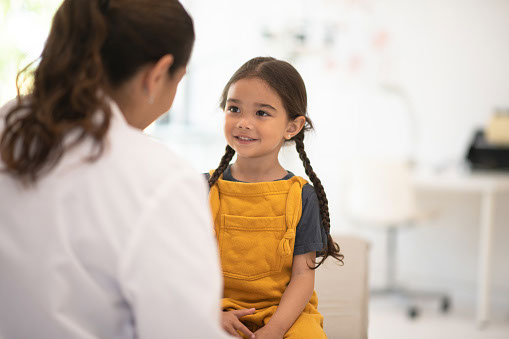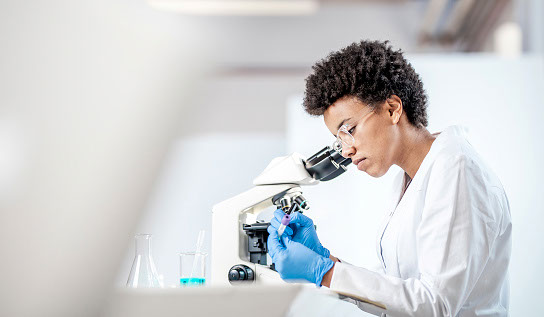 Neuroblastoma Research
Neuroblastoma ResearchNeuroblastoma Research
Research groups that conduct clinical trials
When searching for a neuroblastoma clinical trial for your child, the amount of information available may feel overwhelming. It can help to start learning about the key groups driving clinical trial research in neuroblastoma. Understanding the big picture will help you better navigate the world of clinical trials.
Below you will find some of the key neuroblastoma research groups.
Neuroblastoma Research Groups
Learn more about the different research groups and the goals of their research.
Notable completed neuroblastoma clinical trials
Once clinical trials are complete, the results are usually published in a medical journal. Medical journals are the most reliable place to find key information about the research study/clinical trial. The list below does not show every neuroblastoma clinical trial that has been completed, but includes a few key studies from different research groups.
 Notable completed neuroblastoma clinical trials
Notable completed neuroblastoma clinical trialsANBL0032—Children’s Oncology Group (COG) Study
Antibody added to postconsolidation associated with improved outcomes
- October 2001 to January 2009 at 156 COG hospitals
- 1449 patients enrolled, with 226 patients randomized
- Study publication: Yu AL, Gilman AL, Ozkaynak MF, et al. Anti-GD2 antibody with GM-CSF, interleukin-2, and isotretinoin for neuroblastoma. New England Journal of Medicine. 2010;363(14):1324-1334. doi:10.1056/NEJMoa0911123.
ANBL0532—Children’s Oncology Group (COG) Study
Tandem stem cell transplant improved survival
- November 2007 to February 2012 at 142 COG hospitals
- 652 patients enrolled, with 355 patients randomized
- Study publication: Park JR, Kreissman SG, London WB, et al. Effect of tandem autologous stem cell transplant vs single transplant on event-free survival in patients with high-risk neuroblastoma: a randomized clinical trial. Journal of the American Medical Association. 2019;322(8):746-755. doi:10.1001/jama.2019.11642.
ANBL1221—Children’s Oncology Group (COG) Study
Improved response rates to bone, bone marrow, and soft tissue disease using chemo-immunotherapy in relapsed or refractory disease
- February 2013 to March 2015 at 157 COG hospitals
- 73 patients enrolled, with 35 patients randomized between the 2 arms
- Study publication: Mody R, Yu AL, Naranjo A, et al. Irinotecan, temozolomide, and dinutuximab with GM-CSF in children with refractory or relapsed neuroblastoma: a report from the Children's Oncology Group. Journal of Clinical Oncology. 2020;38(19):2160-2169. doi:10.1200/JCO.20.00203.
CCG-3891—Children’s Cancer Group, Randomization 1
Myeloablative therapy and autologous stem cell transplant result in better 5-year EFS and OS
- January 1991 to April 1996
- 539 patients enrolled, with 379 patients randomized between 2 arms: 3 additional cycles of chemotherapy or consolidation with myeloablative chemotherapy, total-body irradiation, and autologous stem cell transplant
- Study publication: Matthay KK, Reynolds CP, Seeger RC, et al. Long-term results for children with high-risk neuroblastoma treated on a randomized trial of myeloablative therapy followed by 13-cis-retinoic acid: a Children’s Oncology Group study. Journal of Clinical Oncology. 2009;27(7):1007-1013. doi:10.1200/JCO.2007.13.8925.
CCG-3891—Children’s Cancer Group, Randomization 2
Retinoic acid after consolidation results in significantly improved OS
- January 1991 to April 1996
- 539 patients enrolled, with 258 patients randomized between 2 arms: patients without progression after consolidation randomized to receive no further therapy or retinoic acid for 6 months
- Study publication: Matthay KK, Reynolds CP, Seeger RC, et al. Long-term results for children with high-risk neuroblastoma treated on a randomized trial of myeloablative therapy followed by 13-cis-retinoic acid: a Children’s Oncology Group study. Journal of Clinical Oncology. 2009;27(7):1007-1013. doi:10.1200/JCO.2007.13.8925.
NANT1502—New Approaches to Neuroblastoma Therapy Consortium Study
Lorlatinib is an ALK-targeted therapy that is safe and effective in relapsed and refractory patients.
- Opened September 2017 and completion is expected by 2025
- 65 patients enrolled onto this dose-escalation study
- Preliminary publication: Goldsmith, K.C., Park, J.R., Kayser, K. et al. Lorlatinib with or without chemotherapy in ALK-driven refractory/relapsed neuroblastoma: phase 1 trial results. Nat Med. 2023;29(5):1092-1102. doi:10.1038/s41591-023-02297-5.
NB2022—St. Jude Children’s Research Hospital
Antibody therapy during induction chemotherapy improved response
- May 2013 to October 2019 at one hospital, St. Jude
- 153 patients enrolled, with 43 evaluable patients
- Study publication: Furman WL, Federico SM, McCarville MB, et al. A phase II trial of hu14.18K322A in combination with induction chemotherapy in children with newly diagnosed high-risk neuroblastoma. Clinical Cancer Research. 2022;40(21):335-344. doi:10.1200/JCO.21.01375.
SIOPEN High-Risk Neuroblastoma Study, Randomization 2
Cytokine interleukin-2 caused increased side effects without improving outcomes
- October 2009 to August 2013 at 104 hospitals
- A total of 422 patients enrolled, with 406 patients randomized
- Study publication: Ladenstein R, Pötschger U, Valteau-Couanet D, et al. Interleukin 2 with anti-GD2 antibody ch14.18/CHO (dinutuximab beta) in patients with high-risk neuroblastoma (HR-NBL1/SIOPEN): a multicentre, randomised, phase 3 trial. The Lancet Oncology. 2018;19(12):1617-1629. doi:10.1016/S1470-2045(18)30578-3.
SIOPEN High-Risk Neuroblastoma Study, Randomization 1
Consolidation treatment with busulfan/melphalan associated with improved outcomes
- June 2002 to October 2010 at 128 hospitals
- 1347 patients enrolled, with 598 randomized
- Study publication: Ladenstein R, Pötschger U, Pearson ADJ, et al. Busulfan and melphalan versus carboplatin, etoposide, and melphalan as high-dose chemotherapy for high-risk neuroblastoma (HR-NBL1/SIOPEN): an international, randomised, multi-arm, open-label, phase 3 trial. The Lancet Oncology. 2017;18(4):500-514. doi:10.1016/S1470-S2045(17)30070-0.
NMTRC003—Beat Childhood Cancer
Externally controlled analyses show relapse risk reduction with addition of DFMO post immunotherapy
- June 2012 to February 2016 at 22 hospitals
- 140 patients enrolled, with 139 evaluated
- Study publication: Sholler GLS, Ferguson W, Bergendahl G, et al. Maintenance DFMO increases survival in high risk neuroblastoma. Scientific Reports. 2018;8(1):14445. Published 2018 Sep 27. doi:10.1038/s41598-018-32659-w.
MSK 12-230—Memorial Sloan Kettering Cancer Center
Humanized antibody phase 1 study for relapsed or refractory neuroblastoma
- December 2012 to May 2016 at 1 hospital, MSK
- 57 patients
- Study publication: Kushner BH, Cheung IY, Modak S, et al. Humanized 3F8 anti-GD2 monoclonal antibody dosing with granulocyte-macrophage colony-stimulating factor in patients with resistant neuroblastoma: a phase 1 clinical trial. JAMA Oncology. 2018;4(12):1729-1735. Published 2018 Sep 20. doi:10.1001/jamaoncol.2018.4005.